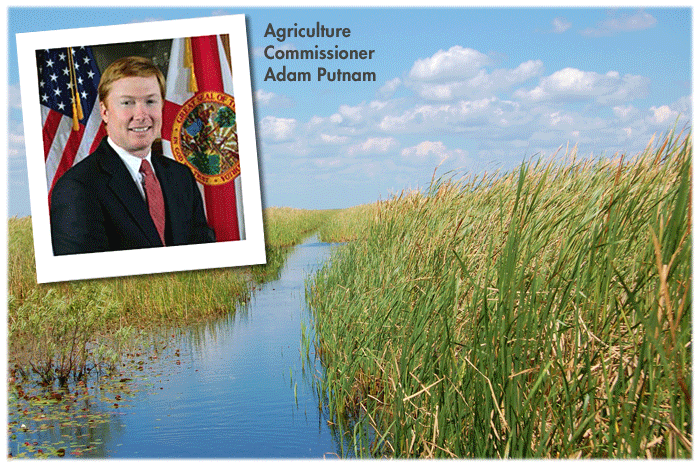The EPA (U.S. Environmental Protection Agency) has once again made an attempt to expand federal jurisdiction on Florida’s waterways with its proposed changes to the rules guiding the implementation of the Clean Water Act. Earlier this month, I testified before a joint hearing of U.S. House and Senate committees regarding the devastating impact of the EPA’s proposed changes.
The EPA claims that the purpose of this rule is to clarify which bodies of water are and are not subject to the Clean Water Act. The EPA claims that the proposed regulations will not significantly change what currently is considered Waters of the U.S. (W.O.T.U.S.). And, the EPA claims the proposed regulations will not substantially affect Florida’s agriculture industry.
I believe this is simply another attempt by the EPA to regulate areas outside of their authority — and in contradiction to guidance given by the U.S. Supreme Court. Contrary to what the EPA claims, the proposed rule will, in fact, lack clarity, significantly expand federal jurisdiction, impose burdensome requirements on agriculture, and impede efforts to protect and restore the environment.
For starters, the EPA’s proposed rule does not clarify how to implement the Clean Water Act, but it does create more ambiguity as to what areas are subject to the requirements, and red tape, of federal jurisdiction.
The proposed rule will increase federal jurisdiction of isolated wetland areas of Central Florida and South Florida by as much as 20 percent. Under increased federal jurisdiction, Florida landowners will be required to invest more in permits and mitigation efforts that, in many cases, will have no positive, measurable impact on the health of our waters.
In addition, the EPA’s proposed rule will impede and, in some cases, dismantle existing restoration efforts for critically impaired and truly important natural water resources. Rather than supporting environmental restoration projects around Lake Okeechobee, the Everglades and other lakes, rivers, and springs, we’ll be forced to divert funding to meet the requirements of this new rule.
For the sake of Florida’s farmers and ranchers, and our efforts to protect Florida’s environment, I urged the U.S. Congress to stop the EPA from advancing this disastrous policy.
CREDIT
article by ADAM H. PUTNAM
Florida Commissioner of Agriculture

